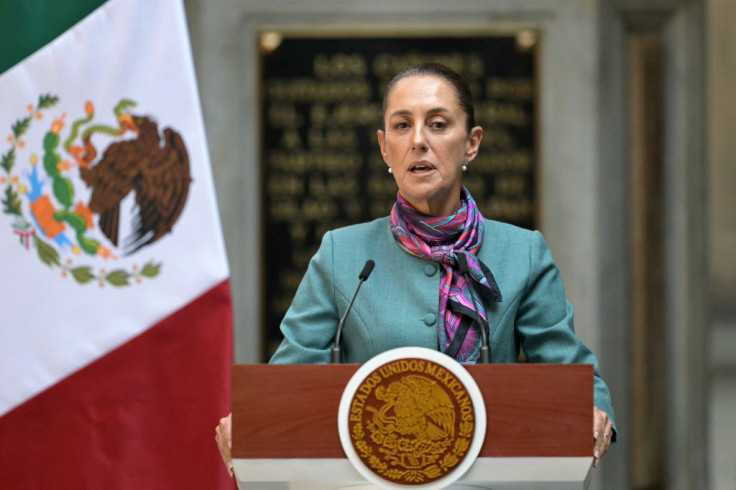
SEATTLE - Almost two months since Claudia Sheinbaum replaced Andrés Manuel López Obrador as Mexican president, the new administration has also brought with it new ways to crackdown criminal organizations that have turned the country into a country where impunity reigns.
As one of her first decrees when sworn in in October, Sheinbaum launched a strategy that singled out 10 municipalities that are key for cartels in their drug enterprise. Titled "Estrategia de Seguridad de los Primeros 100 días," or Security Strategy for the First 100 Days, the strategy aims to neutralize criminal networks as well as capturing generators of violence in those regions.
Despite cities such as Tijuana, León, Ciudad Juárez and Acapulco being singled out as some of the places in need of "priority attention" due to their high level of homicides reported in recent months, the Mexican government has also launched strategies to combat high levels of corruption in other entities across the country.
What is "Operación Enjambre?"
With a literal translation into English that means "Swarm Operation," the joint operation, as its name suggests, had the aim of apprehending and bringing down the network between local government officials in the State of Mexico suspected of having ties with drug trafficking cartels.
In a joint statement, Mexico's Ministry of Public Safety announced that due to previous intelligence reports from the National Center of Intelligence, personnel from Mexico's Ministry of Defense, the Attorney General's Office and the Army were able to conduct raids in various municipalities of the State of Mexico, landing the arrest of seven mayors, public security directors and other public servants with strong ties with criminal groups.
Thanks to the appropriate research into the criminal network, authorities obtained documentary and demonstrative evidence that were sent to a federal judge that approved the order arrests of public officials in the State of Mexico, particularly for suspects in the municipalities of Amanalco, Santo Tomás, Tonatico, Chicoloapan, Ixtapaluca, Tejupilco, Naucalpan, Coacalco, Jilotzingo and Texcaltitlán that, according to authorities, were immersed in cases of extortion, "express kidnappings" and homicides.
Among those arrested during "Operación Enjambre" was María Elena "N," former mayor of the municipality of Amanalco who was accused of being the criminal mastermind behind the homicides of Miguel Ángel Lara and Guillermo Jerónimo Roque.
Most of the officials arrested during "Operación Enjambre" held positions within the state's public safety departments but contrary to what their jobs ordered, they extorted and kidnapped members of the population with the help of criminal groups.
Mexico's Ministry of Public Safety said the suspects were linked to multiple criminal groups, including the Cartel Jalisco Nueva Generación (CJNG), the Cartel Nuevo Imperio, La Familia Michoacana and the Unión Tepito gang.
The agency also revealed that although 14 arrest warrants were sent out to officials in the State of Mexico, only eight of them were located.
Authorities were able to arrest seven of the 14 suspects while another one of the officials accused of having ties with criminal groups committed suicide to prevent being captured.
That individual was identified as Isidro Cortés, public security chief in the municipality of Texcaltitlán. In a video that went viral on social media, military personnel can be seen reading Cortés his Miranda rights before the official pulled out a firearm and allegedly killed himself to avoid being arrested.
Since the Sheinbaum administration launched "Operación Enjambre," at least 1,500 members of the Army, Navy, National Guard and other local and federal law enforcement agencies have been deployed all over the State of Mexico to crackdown collaborations between local government officials and criminal groups.
© 2025 Latin Times. All rights reserved. Do not reproduce without permission.







